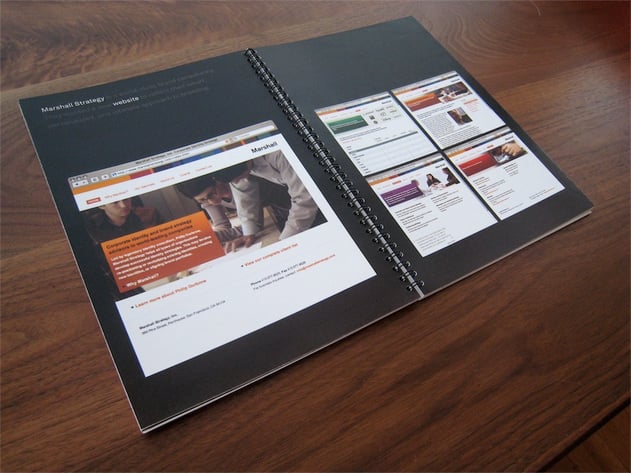You hear of many do's and don’ts for job interviews, but one that really needs highlighting is Do show the interviewer why you’re the perfect fit but Don’t tell the interviewer you’re perfect without proving it. What would you rather:
“Hey, I’m really awesome at magic tricks”. Okay, well that’s nice.
OR
"Hey, I'm fantastic at magic tricks. Let me show you my best trick that received a standing ovation at my last performance".
Now, translate magic to your job interviews.
Practice Leader, Human Resources and Francophone Recruitment, Janelle Robin, has over a decade of experience in management, sales, and leading teams in industries ranging from tourism to wholesale. From the good to the bad, Janelle’s experienced many interviews. So, we decided to turn the tables and interview Janelle on exactly that, interviews, and compile a list of 10 important interview tips for you.
1.) Own Your Achievements
It’s understandable that many of your achievements are team-based, but there are certainly things you solely worked on in those teams; Highlight those things! If you worked on a campaign in a group of four, but you developed all signage, and edits, and sponsorship proposals, for example, explain that.
Did you create a process? What did YOU do?
It’s great that you aren’t claiming all the successes of the team, but you do have to show what you can bring to the table. You need to accomplish showing what you accomplished and can accomplish.

Photo Credit: http://www.sportskeeda.com/general-sports/defective-medals-lusofonia-games-india-image-tarnished
2.) Know Your Weakness(es)
Janelle always asks her candidates, “If I were to call your reference(s) tomorrow, what would they say?”
Don’t give the generic response that you’re too much of a perfectionist or you work too hard. Be honest. People need to see you’re genuine and aware of your own development opportunities.

Photo Credit: http://www.studyingpsychology.com/wp-content/uploads/2014/07/ocd_4.jpg
3.) Know What You’re Looking For
You need to know the types of roles that interest you. Have a direction. And once you have that direction, be clear with what that route looks like. If you lead yourself into a role that doesn’t fit your capabilities or your desires, then you’re not going to be happy, it’s going to show, and it’s not going to work out.
So, if you’re in the sales industry, and you thrive on a base + commission structure, because that pushes you to get those commissions, then say that. If you know that a challenge is something you enjoy and brings out your strongest qualities, then state it and aim for it. Maybe you need flexible hours. Say it. We need to find the right fit, so if you don’t say it, we can’t help you.
Keep in mind, working with a recruiter is different than directly applying for a position at a company. If you’re applying for a position that has strict working hours from 9 to 5, then your flexible desires aren’t going to work out. But stating your need for flexibility to a recruiter gives them the ability to pair you with a position that does provide that opportunity.

Photo Credit: http://www.thebestcareerforme.com/wp-content/uploads/iStock_000014705818XSmall.jpg
4.) What Are Your Top 3 Selling Attributes?
Yes, it’s nice to say you have a great work ethic and you get along with people, but give details. Be specific with your answers. You should know your 3 selling attributes before entering the interview, and back them with details. So if you have a hard work ethic, say, “You can ask my references, I make sure the job gets done, so if that means working late, then that's not a problem. I do what it takes to meet deadlines.”

Photo Credit: https://speakmoreclearly.com/wp-content/uploads/2014/06/20.jpg
5.) Tailor Your Resumes
Your resumes should be reflective of the role you’re applying for. Look at the language the company uses, the requirements of the position, the skills needed, and make sure you cover all of those areas in your resume. Also, make sure you address the resume to the appropriate hiring manager. Here are our resume and cover letter tips: http://bit.ly/CoverLetterRecipe

Photo Credit: https://www.etsy.com/market/custom_resumes
6.) Tailor Your Answers
A thoughtful response is far more impactful than responses quickly delivered for the sake of answering right away. If it means taking a moment after the question's asked, no problem. If taking a moment to ponder means it will give you the time to develop a great and truthful response, then do it.
Tailoring your answer means don’t give generic answers; Tailoring your answer doesn’t mean giving an answer you think the recruiter wants to hear. Know how to sell yourself without sounding like you’re selling yourself – just keep calm.

Photo Credit: http://ideaspicker.com/how-to-improve-critical-thinking-skill/
7.) Do Your Research
If you ask a question, like, 'how many locations do you have', meanwhile on the first page of their website it boldly says, we service 5 locations, then that isn’t a well prepared question. It’s great to ask questions, but make sure the answers aren’t readily available. For example, if you’re an HR Administrator, it’s a good question to ask what software the company uses.
Understand the title and understand whether it’s a new or pre-existing role. If it’s a pre-existing role, it’s a good idea to ask why the role’s vacant at the moment.

Photo Credit: http://www.resumark.com/blog/linda/common-interview-questions-answers-part-11/
8.) Never Embellish Your Skills
First off, imagine embellishing a skill and then the recruiter gives you a test to prove it for a client, and you can’t do it; That would be pretty awful, wouldn’t it? Also, why would you want to get a job you can’t do?However, if it’s a case of a couple desired skills the client wants that you have minimal experience with, just say that. You can back it up with saying, if it’s true, that you’re a quick learner and enjoy new challenges. If you’re great at self-teaching, then explain that and provide examples; It shows initiative.

Photo Credit: http://parksandrecbusiness.com/archives/columns/a-man-of-many-hats/
9.) Customize
Just like customizing your cover letter and resume, customize your application and approach to getting an interview. Find the hiring manager’s information, or who’s accepting personal applications, versus templated ones, and send them your resume! Taking the time to figure out whom to send it to, and actually address a customized body in the email, when sending it to the recipient.
Some companies might not properly list the receiver, and this may pose as a challenge on behalf of the company. There are cases where companies with Sales positions want to see how pro-active an applicant is to get past the gate-keepers.
Take the time to figure out how you should apply for the position. If you take the time to research, craft a proper message, and cleanly edit everything, you’re going to stand out.

Photo Credit: http://www.fiercehealthit.com/story/radiologists-ready-be-imaging-gatekeepers/2013-07-06
10.) Visuals
In most cases, you’re going to want to bring in supportive materials to showcase your work, skills, and qualifications. The following are a couple options that may be applicable to you:
- Portfolio.
- USB showcasing work.
- Sending a link to a website of yours or have it on a USB.
- A mock example of work applicable to something the company can use now or upcoming, like a Strategic Communications Plan or a Succession Planning Chart and Analysis showcasing how you would find candidates for a position, should you be applying for an HR role of some sort.
- A major project.
- Test Results. For example, if you’ve tested for Excel or Microsoft and you have those results, bring them. Results eliminate the possibility of further testing in those areas, and it’s presentable to the client.
- Examples of good writing skills.
- Examples of major accomplishments. Maybe you held a senior role and you changed the company’s retention rate from 29% to 16%. Numbers speak volumes, so if you can show that, do it.

Photo Credit: http://www.lifeclever.com/show-tell-chanporys-portfolio/
At the end of the day, show don’t tell. There are many ways to approach applying to a position, and yes, it can be subjective; However, there are base rules to always follow. Remember, every position and every company’s different, and every approach to applying to these companies should be just that: different.
Follow us @PFRecruiting, and Like us on Facebook at: https://www.facebook.com/PeopleFirstRecruitment. You can also connect with us on LinkedIn at: http://goo.gl/knNJ8k.
